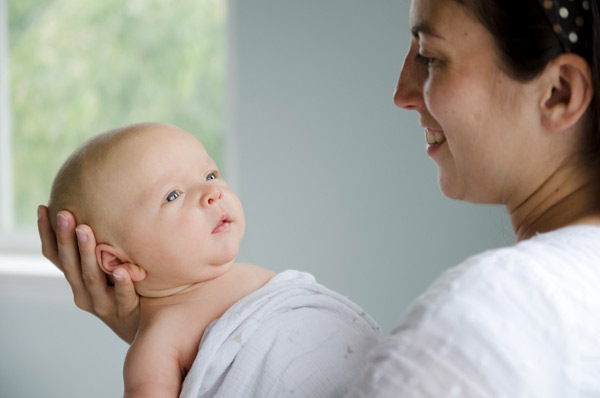
Research shows that stable parent-child bonds are fundamental to healthy child development. For parents of babies born prematurely or with special medical needs, this early bonding can be interrupted by the complex medical care required in a neonatal intensive care unit (NICU).
An ongoing study conducted at a large metropolitan NICU, however, shows that a little skin-to-skin snuggling between mothers and babies can go a long way toward reducing maternal stress levels.
The study, to be presented at the American Academy of Pediatrics (AAP) National Conference & Exhibition, examined mothers’ stress levels before and after they held their babies “kangaroo style” (skin-to-skin inside the pouch of the parent’s shirt) for at least one hour.
“We found that all of the mothers reported an objective decrease in their stress level after skin-to-skin contact with their babies,” said neonatologist Natalia Isaza, MD, FAAP of Children’s National Health System in Washington, DC. This was especially true regarding the reported stress of being separated from their infants, feeling helpless and unable to protect their infant from pain and painful procedures, and the general experience in the NICU, she said.
Birthweights of the infants ranged from less than 1 pound to over 8 pounds (0.38 to 3.7 kg), and their ages varied from 3 to 109 days. The infants were being treated for a diversity of health issues, with more than half requiring oxygen support.
“We already know there are physiological benefits in the newborns when they are held skin-to-skin,” Dr. Isaza said, such as stabilization of heart rate, breathing patterns and blood oxygen levels, gains in sleep time and weight, decreased crying, greater breastfeeding success and earlier hospital discharge. “Now we have more evidence that skin-to-skin contact can also decrease parental stress that can interfere with bonding, health and emotional wellness, and the interpersonal relations of parents, as well as breastfeeding rates.”
“This is a simple technique to benefit both parent and child that perhaps should be encouraged in all NICUs,” Dr. Isaza said.
The study done by American Academy of Pediatrics.